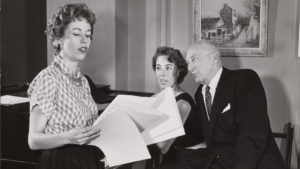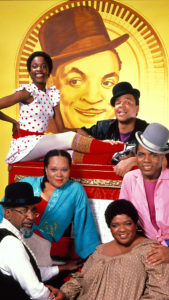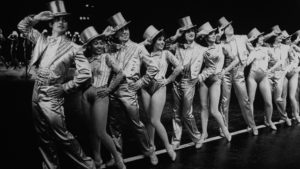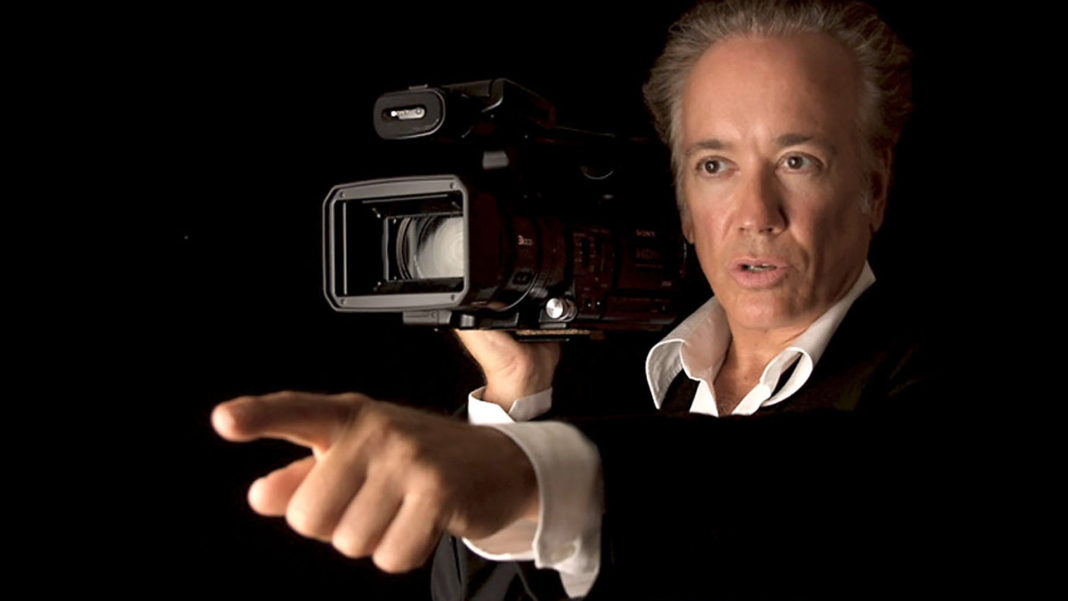At the 2016 Palm Springs International Film Festival fans of Broadway plays and musicals were finally given their first chance to see Broadway: Beyond the Golden Age, a sequel to Broadway: The Golden Age from the Legends Who Were There. The first film was so passionately loved by fans that the long 12-year-wait for the sequel was insufferable.

The film covers Broadway shows from 1959 to the early 1980s and features interviews with Bea Arthur, Elizabeth Ashley, Alec Baldwin, Candy Brown, Carol Burnett, Glenn Close, André De Shields, Jane Fonda, Robert Goulet, Robert Guillaume, Cherry Jones, Baayork Lee, Donna McKechnie, Liza Minnelli, Robert Morse, Jerry Orbach, Robert Redford, Debbie Reynolds, Chita Rivera, Eva Marie Saint, Liev Schreiber, Elaine Stritch, Dick Van Dyke, Ben Vereen and Lesley Ann Warren.
Almost exactly two years later the man who made those films, Rick McKay, passed away suddenly. Broadway: Beyond the Golden Age was left unfinished and unreleased.
This weekend Great Performances on PBS will begin airing the documentary which was completed by friends and colleagues of McKay. [Check your local PBS listings for details.]
Two of the most important people who helped complete Broadway: Beyond the Golden Age were producers Jamie deRoy and Jane Klain. Last week I spoke by phone with both women to get the details on how they were able to finish McKay’s film and how they hope it brings to fruition everything McKay wanted the film to be.
What follows are excerpts from those conversations that have been edited for length and clarity.
How did you get involved with finishing Broadway: Beyond the Golden Age?
DeRoy: It sort of became this natural thing that we ended up doing to see that his wishes were carried out. Everybody had been asking for years about the film because the film had been going on for years.
Klain: Four of his producers and friends obviously realized what Rick would want is for the film to get out there. We all worked towards what Rick wanted. Since the first film was a theatrical release and it was so unlikely to get another, being on television was the ideal home for it. I know his first choice was PBS.
How far along had Rick gotten with the film before he passed away?

DeRoy: He had gotten pretty far, but it was not a finished film. It was way too long.
Klain: When Rick died I connected with a brilliant editor who would work on it pro bono, but that fell through. Another producer/director wanted to unravel it and make a different film and I said no. Rick was really a visionary. He had a unique way of storytelling. The way he edited was amazing.
He seemed to get almost everyone he ever wanted for these films. How did he do that?
DeRoy: Everybody that met him and he would interview would end up adoring him. He really charmed people. He loved the theater so much. He could talk to anybody.
Klain: He had somewhere between 100-150 interviews with these legends. Some were one to one-and-a-half hours, some were five hours.
Rick told me how thrilled he was to have found footage of Chita Rivera and Liza Minnelli performing together in the original production of Chicago when Gwen Verdon had to miss several performances.*
Klain: Candy Brown was a Fosse dancer. I had seen footage she had taken with her 8mm camera. I’m very good at tracking down people. They became such close friends. She let him have the footage – amongst it was footage with Chita and Liza which Liza had not seen before. Rick’s film has John Kander talking about it and Liza talking about it.
Rick was kind of a one-man band doing it all with his films, but the new film has 11 producers.
DeRoy: He pretty much was a one-man band. But listen, all of us were out there raising money and making introductions and helping. If I was in the room when he was doing an interview or showing the film I got acknowledged. If I wasn’t in the room, I wouldn’t have gotten acknowledged. Maybe it made a much better story.
Klain: If Rick had lived one of the big hurdles he was going to have to face was raising money for the post-production and all the licensing. That was a big deal for the first film. WNET 13 has done a lot of that. We’ve been in the decision making seat and PBS has been amazing.
Jamie I want to ask you a question I asked Rick five years ago. In an era where younger people don’t care about history because it was “before their time,” what would you tell them is the reason to care about Broadway and the people in this film?

DeRoy: It’s like the building blocks of everything. I’m always appalled at actors or singers who don’t know the history. When I was involved in the cabaret community and mentioned Margaret Whiting they would go, “who?” I don’t get it. It’s part of your learning process. These films could be shown in schools and you can learn a hell of a lot from it. We all learned by watching Ethel Merman. These were my idols. Even though they were before my time, so to speak, they are the ones who laid the groundwork for everyone to come up afterwards.
Jonathan Groff, who introduces the movie, wrote Rick a fan letter saying how much the film meant to him. Shortly before Rick died I took him to see Jonathan at the 92nd Street Y doing a show. They were talking afterwards about doing a follow-up interview because Jonathan was so young when he did his and he had some experiences since that first interview.
It’s just been a passion for all of us and it was certainly a passion of Rick’s. I’m only sorry he’s not here to see it come to life. And everybody can now enjoy it. Not only enjoy it, but learn from it. It’s all there and these films were meant to be seen.
*Liza Minnelli took on the role of Roxie Hart from August 8th to September 13th, 1975. There was announcement over the PA system that Gwen Verdon would be out at the performance. Audiences would grumble. The announcement continued to reveal that Minnelli was performing in her place. There were no press releases and no inserts in the Playbills.
Photo of Rick McKay courtesy WNET/PBS











How terrific Jane , can’t wait to see it!